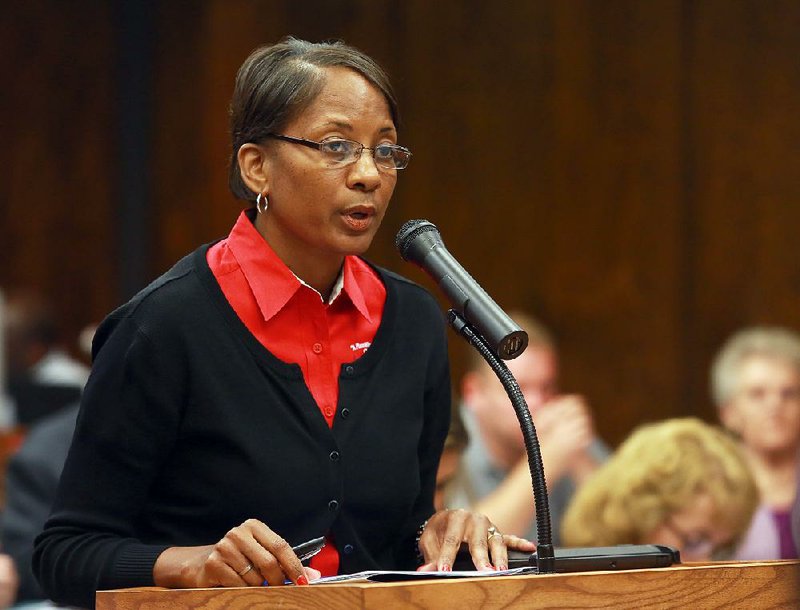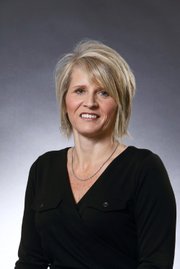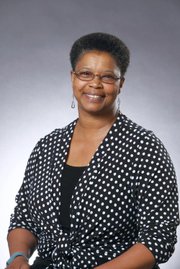The state's Charter Authorizing Panel on Wednesday endorsed the renewal of four charter schools in Little Rock, Pine Bluff, Cross County and Imboden after questioning each one about its record of low student achievement.
The panel of top-level staff members at the Arkansas Department of Education -- on the first day of three days of hearings on charter-school extensions -- voted 6-2 to support a three-year renewal and a review of student test data in two years for Covenant Keepers College Preparatory Charter School in Little Rock.
Campus leaders had requested a longer renewal for the 170-pupil middle school that is labeled by the state as both academically distressed for having fewer than half of students score at proficient levels over three years and a "priority school," which is the result of being among the 5 percent lowest-achieving public schools in the state.
The authorizing panel similarly approved a three-year renewal -- with a test-data review after two years -- for the Pine Bluff Lighthouse Charter School that was recently designated as a priority school.
Arkansas Code Annotated 6-23-105 states that a charter school authorizer may place a public charter school on probation, or may modify, revoke or deny renewal of a charter to a school if the people operating the school violate the charter, which can include failing to satisfy accountability provisions, failing to satisfy financial management requirements, or failing to comply with applicable laws.
The Education Department panel also on Wednesday approved five-year renewals for the Cross County High School, A New Tech School, that is based in Cherry Valley and earned a D grade on its most recent state report card; and for the Imboden Area Charter School near Jonesboro. The Imboden Area Charter School has the distinction of being one of the state's oldest charter schools at 14 years and the state's smallest public school with just 44 students in kindergarten through eighth grade this year.
The Charter Authorizing Panel's decisions are now subject to review by Arkansas Board of Education which has the authority to either accept the panel's votes or hold its own hearings and make its own decisions on any of the applications.
"We need a stretch of time, a runway, to show that we are doing something very good," Valerie Tatum, founder and superintendent of Covenant Keepers, 5615 Geyer Springs Road in Little Rock, told the panel in asking for at least a five-year renewal for the 2008 charter. "Progress is being made even though it may not be all that you want," she said.
Tatum and members of her staff described a school in which 96 percent of the enrollment qualifies for subsidized school meals, which is an indication of low family income. Fifty-five percent of the enrollment is black, 45 percent is Hispanic and 31 percent has limited English-speaking skills.
Many of the children start at the school with skills that are two to four years below their grade levels. The school, which is in an area of town where the Little Rock School District's Cloverdale Middle school is also classified as academically distressed, has struggled with high student and teacher turnover and by changes in the state's testing system, Tatum said.
The state has changed from the Benchmark Exams to the Partnership for the Assessment of Readiness for College and Careers, or PARCC, exam, to the ACT Aspire that will be given for the first time this spring.
Tatum said the school is doing better at retaining staff and is under the direction of a new principal, Lenard Blocker, who has instituted new one-to-one student behavior intervention program that is widely accepted by teachers.
Sarah McKenzie, executive director of the University of Arkansas at Fayetteville's Office for Education Policy, reported on the school's behalf about NWEA Measures of Academic Progress tests given at the school. The data from the national testing program show that better than 50 percent of the school's lowest-performing students made more than one year's worth of academic growth last school year, McKenzie said, even though the students did not reach the desired levels of proficiency in math and literacy.
Charter Authorizing Panel members praised the school for the "wraparound" student services and community partnerships with organizations such as the Salvation Army.
Mark Gotcher, deputy education commissioner and a panel member, said the school's "college preparatory" title was a misnomer, as the school is "much more than that -- you are meeting the needs of the whole child."
Jennifer Liwo, an attorney for the department and a member of the panel, said that she isn't sure the school can succeed. But she was moved to approve the renewal largely because of the testimony of an eighth-grader, who is of Hispanic ethnicity. The student told the panel that his three years at the school and the support provided to him by the staff "saved my life."
But panel members also expressed concerns about the length of time the school is taking to show adequate levels of student achievement.
"The data seems to tell different stories," Ivy Pfeffer, assistant commissioner and Charter Authorizing Panel member, said about the growth data from the NWEA and the state's own testing programs.
Assistant Commissioner Eric Saunders said the single-digit numbers of proficient students at the school this past year on the PARCC exam "are contradictory to the growth reports" and that the results from state testing programs must be looked to more as a measure of success.
"I can't be satisfied with constant bottom performance. I need some help," Annette Barnes, assistant commissioner for accountability and a panel member, told Tatum.
Barnes ultimately made the motion to renew the charter for three years with the school's test data to be reviewed by the Education Department after the ACT Aspire is given for two consecutive years.
She said that the two years of data will show whether the school is moving into a position to be removed from the "priority" status.
Panel members voted 6-2 for the renewal, with the Gotcher and Assistant Commissioner Greg Rogers voting against the motion in part because they thought the renewal should be for a greater number of years.
The panel voted unanimously in favor of granting a three-year renewal and test-data review for the Pine Bluff Lighthouse Charter School at 708 W. Second Ave.
The charter school, which opened in 2011, is part of a national network of Lighthouse Academies designed to provide an arts-infused curriculum for students who would otherwise have limited opportunities. The Pine Bluff campus was approved to serve up to 650 students in grades kindergarten through 12 but is currently serving 343 in kindergarten through eighth grade. School leaders asked and received approval Wednesday to amend their charter to omit the high school component.
Lenisha Broadway, regional vice president of Lighthouse Academies, described for the panel the challenges the school has had in operating the high-poverty, high-minority, highly mobile student enrollment with a staff that is frequently changing in a city that has struggled with violence and poverty in recent years. The school, which has had four principals since its inception, is now headed by Brent Mitchell, who attended Wednesday's session with a contingent of about a dozen supportive parents.
The school has put into place a "Revamp/Restart Plan," Broadway said. That has included a move to curriculum programs and interim tests that are better aligned to Common Core State Standards in math and English/language arts than past programs and tests, she said.
The school also has added extracurricular activities for students, and training programs and pay incentives for employees.
The school is in the early stages of working with the state Education Department on developing plans for exiting from priority status.
The panel also unanimously supported a five-year renewal for the Imboden Area Charter School that opened in 2002 in the Sloan-Hendrix School District boundaries. The independently run public charter school, located at 605 W. Third St., is approved to serve grades kindergarten through eight with a maximum of 150 students but has an enrollment this year of 44, down from 59 last school year. The school has just three students in second and eighth grades and just two pupils in fourth grade. Seventh grade is the largest class with eight pupils.
More than 30 percent of the school's virtually all-white enrollment are special education students. About 10 percent of students are in foster families and 13 percent are homeless.
Judy Warren, the school's longtime director, said the purpose of the "unique" school is to provide a needs-satisfying environment. Warren, like other charter school operators on Wednesday, pointed to data showing that students who remain at the school make academic gains over time.
State evaluators expressed some concerns about the school, including the fact that notice was sent to the school in February that federal Title I funds would not be distributed until an application was submitted and approved. Those applications were due Oct. 1 last year.
Additionally, state evaluators questioned the lack of records on student discipline, uncertainty about who creates lessons and who manages the movement of students among groups, and lack of clarity about how financial duties are segregated and monitored.
Warren and members of her staff said that student discipline rarely goes beyond a few conversations and that students are supportive of one another. She said the Title I applications have been submitted and that there are school policies that spell out the financial management of the school.
In response to questions, Warren said the projected $35,000 in balances projected for the end of this school year is a small amount and a concern, and that the school is attempting to recruit more students. She said the school has a history of fluctuating enrollment.
The Cross County High School, A New Tech School, is a conversion charter school that is operated by the Cross County School District and not by some other type of nonprofit organization. The seventh- through 12th-grade school with an enrollment of 285 features project-based learning program and the Teacher Advancement Program that provides ways for teachers to take on added responsibilities and earn greater pay without leaving the classroom.
The charter program was established in 2011.
Superintendent Carolyn Wilson and Principal Stephen Prince told the panel that efforts were being made to improve low student math scores at the school through daily math instruction and problem solving. The school earned a D last year on its report card in part because of a low high school graduation rate, an anomaly, school leaders said.
Panel members praised the school for its successes in increasing the number of school graduates who enroll in two- and four-year postsecondary institutions.
A Section on 02/18/2016



